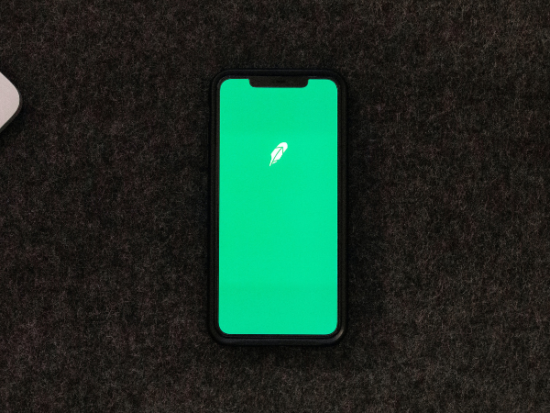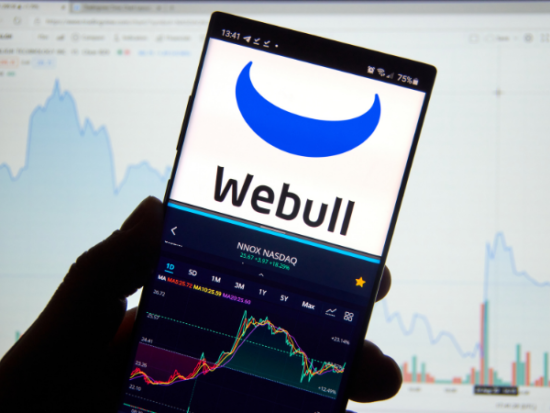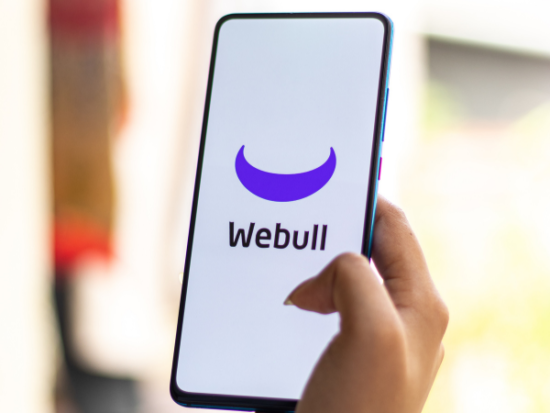Robinhood vs Webull has risen as the top contenders for investing apps. Their popularity is hard to ignore as millions of users trust them for their ability to trade quickly and track progress. And not only that, but the apps also provide you with trading options and also cryptocurrency trading. So when it comes down to it, which is better between Robinhood vs Webull?
The recent controversy surrounding GameStop catapulted Robinhood into notoriety. If you’re in the market for another broker that does a couple of things better, then Webull is the broker for you.
Webull displays helpful charts that provide better customer support and still facilitate commission-free trading. As for Robinhood, it excels at no-cost trading, fractional shares and has an excellent app that’s cool to use. Robinhood vs Webull: Which is better?
So which broker should you choose? That, of course, depends on the features you need and if your broker offers them. Check out this comparison of standard features between both brokers.
Related Articles
How Does Robinhood Work?
What is Online Trading?
Best Cryptocurrencies to Invest in 2021
Both Robinhood and Webull offer:
- $0 stocks and ETF commissions
- $0 per contract on options commissions
- a $0 account minimum
- stocks, ETFs, options, and cryptocurrency as tradeable securities
- $75 transfer out fees
- NO transaction fees for mutual funds
- individual taxable accounts, but Webull also offers IRAs like traditional, Roth, and rollover
- mobile apps for Android and Apple
- customer support, but Robinhood only has a limited email and chatbot support, while Webull provides 24/7 phone and email support as well as an in-app chat
Only Robinhood offers:
- Fractional share trading for purchase and dividend reinvestment
Credit goes to Robinhood for catapulting investing apps into the mainstream with its offer consisting of no-cost trading, ETFs and options, and even cryptocurrency. However, Webull has emerged as a very worthy rival with many of the no-cost options popularized by Robinhood.
Most brokers allow zero-commission trading for stocks and ETFs. But what sets apart Robinhood and Webull is the no-cost trading they offer for options. Compared to the industry standard of $0.65 for each contract, many newcomers would instead flock to investing apps for this no-cost feature. It’s worth noting that some brokers do offer discounts for large volume traders.
Related Article: How does Rent to Own Work?
Crypto Trading
Both Robinhood and Webull offer crypto trading without any out-of-pocket costs. However, there are hidden costs in the trading price as you will implicitly pay markup spread across transactions. That being said, this is nothing new and is commonplace in forex markets.
In general, Robinhood and Webull have practically the same offer for account costs. Each offers no activity fees on ongoing account charges. Both brokers, however, charge $75 transfer-out fees.
This is compared to large brokers like Fidelity Investments, which charge $0 for this. This means that this fee will remain unnoticed until a user leaves either app or needs to move securities away from the account.
Related Article: Best Crypto Wallets
Account minimum
One of the biggest attractions of both Robinhood and Webull is they offer no account minimums. This makes it very accessible for investors of all wealth levels to get started immediately with either app. In this regard, the question of Robinhood vs Webull ends in a draw.
Tradable securities
Another reason Robinhood and Webull have become so popular is that they cater to the most popular trading categories. This means they do not offer other securities most other brokers offer, including forex, bonds, and mutual funds. Instead, these investing apps only offer stocks, ETFs, options, and cryptocurrency.
If you are looking to invest in these other faster-paced categories, Robinhood and Webull is not for you. However, there’s no real need to enter these segments for many people anyway if the goal is to amass a comfortable portfolio for the future. Working in this narrower section can work very well for most investors.
But even if this is the case, not offering mutual funds can be a real downside for some. If you are looking for mutual funds, it may be best to get a top broker’s advice with offerings in this segment. Otherwise, choosing Robinhood vs. Webull can be suitable for brokers looking to cash in on short-term trading.
Related Article: Why is there a Coin Shortage?
Account types
The account types you can have are restricted in both Robinhood and Webull. For Robinhood, you can only have an individual taxable account. Webull offers a little more since you can set up personal retirement accounts (IRAs), including traditional IRA, Roth IRA, or rollover IRA. Practically speaking, this means that any expansion would likely require a more prominent broker with more comprehensive accounts.
Fractional shares
Robinhood excels in fractional shares. You can reinvest dividends into stock or invest directly in fractional ownership. This combination is uncommon, and even larger brokerages like E-Trade and Merrill Edge do not offer it. However, these said brokerages do allow dividend reinvestment.
Robinhood is the choice of many newbies since you can start investing with as little as $1. Not only that, but you can also divide up stocks into tiny fractions up to one-millionth of a share. They allow partial shares in all but the smallest stocks or those that trade below $1/share.
In stark contrast, investors in Webull cannot avail of fractional share or dividend reinvestment purchases.
Customer support
The differences between Robinhood and Webull start to become apparent in their customer support too. Webull is open to questions and inquiries from users 24/7 via phone, email, and in-app chat. Additionally, it also has an online help center to answer the most frequently asked questions.
Robinhood has more limited options for customer service. It doesn’t help that a recent review by Bankrate highlighted the difficulty of finding Robinhood’s service number. This means Robinhood users are stuck sending emails to customer support, trying the sometimes reliable chatbot, and consulting the help page.
Webull takes the win in customer support even though neither app has a physical location where users can visit for in-person help.
Related Article: What are Nio Stocks?
Other factors
In terms of instant funding of accounts, there is a draw again between Robinhood vs. Webull. Both apps include it, as well as a $1,000 initial credit while the broker awaits your move.
Both trading apps allow you to finance your account right away. While the broker waits for your bank transfer, you will get an initial credit of up to $1,000. Additionally, subscribing to Robinhood Gold for $5/month gives perks like higher instant transfer amounts, margin trading at 2.5%, which is among the industry’s lowest, and access to Morningstar market data.
On the other hand, Webull offers limited research but does offer a suite of charting tools and dozens of technical indicators. From a UX standpoint, even if you don’t use these tools, the visual experience is pretty cool.
Overall
While Webull offers only limited research, it provides an excellent suite of charting tools and a few dozen technical indicators. Even if you don’t use these tools much or at all, it’s an impressive visual experience.
You can also open a paper trading account on Webull to train yourself in trading. The account gives you $1 million worth of virtual cash to use and learn on the trading platform. The app won’t charge you for access to a margin account. It also provides a sliding scale of rates which can drop as low as 4%.
Something familiar between the apps is the easy bonus promotions that you can achieve. The bonus is a modest freebie, like free stocks of some of the more expensive stocks, which is still reasonable than larger brokers, which would charge for promotion.
Ultimately, it’s worth noting that Robinhood experiences service outages on occasion. This is most apparent during periods of heightened market activity. Having unreliability of this sort may be a significant turn-off for those watching the market and need to jump on trades in real-time.
Final Thoughts
Robinhood and Webull are so similar when stacked up against each other that it’s a tough call to determine who’s better. Both are easy to use and great platforms to enter the world of stock trading. However, the fantastic visuals of Webull’s charting are a tremendous advantage. For beginners, the deciding factor will be what you need out of your brokerage app.
If slick charts and the availability of a paper trading account appeal to you, then Webull may be your best bet. However, if you would rather have a low-cost margin and the ability to trade fractional stocks, then Robinhood is for you. If you want, you can even open multiple brokerage accounts, so you aren’t stuck choosing between Robinhood vs Webull.







